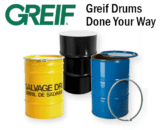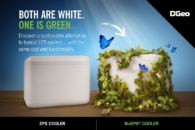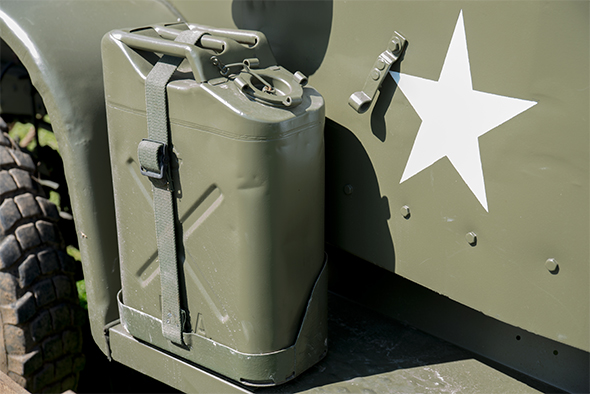
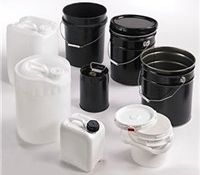 Maybe you’re one of the hundreds of people who buy our jerricans and pails. After all, they’re indispensable for all kinds of liquid transport and storage purposes.
Maybe you’re one of the hundreds of people who buy our jerricans and pails. After all, they’re indispensable for all kinds of liquid transport and storage purposes.
But for all the times you’ve filled, emptied, shipped and stored jerricans and pails, we bet you’ve never stopped to ponder them. Well, we have, and we’ve discovered more about them than you’ve probably ever wanted to know:
- Jerricans were named for the Germans who invented them. The original steel fuel cans (Wehrmacht-Einheitskanister, in German) were actually a huge advance over the square cans used by Allied forces—easier to carry, easier to pour, and more durable.
- American forces in Europe eventually required nearly 20 million jerricans, once leadership was persuaded to reverse-engineer them. By May, 1945, we were sending more than 1.3 million cans to the European Theater every month.
- The name “Jerry” was most popular during World War II, just when you would have expected anti-German sentiment to be strongest. The name’s popularity peaked at #14 in 1940 and ’41. By contrast, “Jerry” barely cracked the top 500 baby boys’ names in 2015, limping in at #491.
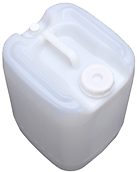 Labelmaster jerricans are now made exclusively from polyethylene. They’re available in sizes from 1.3 gallons up to 30 liters, and they’re UN-certified.
Labelmaster jerricans are now made exclusively from polyethylene. They’re available in sizes from 1.3 gallons up to 30 liters, and they’re UN-certified.
- The Jerry Cans are rock stars in Nunavut. Nunavut is the sparsely populated Canadian Arctic Archipelago, where the Jerry Cans are fast-rising stars who sing many of their songs in Inuktitut.
- There’s no difference between a pail and a bucket, although people tend to think of buckets being bigger. (Dying wouldn’t seem like such a big deal if you were just “kicking the pail.”) Nevertheless, our steel and plastic pails hold up to five gallons.
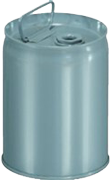 Labelmaster steel pails are available with epoxy phenolic linings, created by combining heat-cured epoxy resin with thermosetting phenolic resin. This makes them ideal for safely and securely shipping paints, inks, chemicals, asphalt, driveway liners, petroleum products and more.
Labelmaster steel pails are available with epoxy phenolic linings, created by combining heat-cured epoxy resin with thermosetting phenolic resin. This makes them ideal for safely and securely shipping paints, inks, chemicals, asphalt, driveway liners, petroleum products and more.
- Jack and Jill were morons. Who goes up a hill to fetch a pail of water? We generally find more water at the bottom of the hill.
- “Jack and Jill” may have been anti-tax propaganda. Centuries ago in England, a “jack” was a half pint of beer and a “gill” was a quarter pint. King Charles I wanted to raise beer taxes, but was blocked by Parliament, so he tried to reduce the volumes of liquid measures. So Jack and Jill falling down may have been symbolic of shrinking beer servings.
Well, that’s probably more than you ever wanted to know about Labelmaster jerricans and pails, not to mention World War II, Nunavut rock bands and nursery rhymes. But all you really need to know is that whether you choose plastic or steel jerricans they come with Labelmaster expertise. Call 800.621.5808 to speak with one of Labelmaster’s experts.
